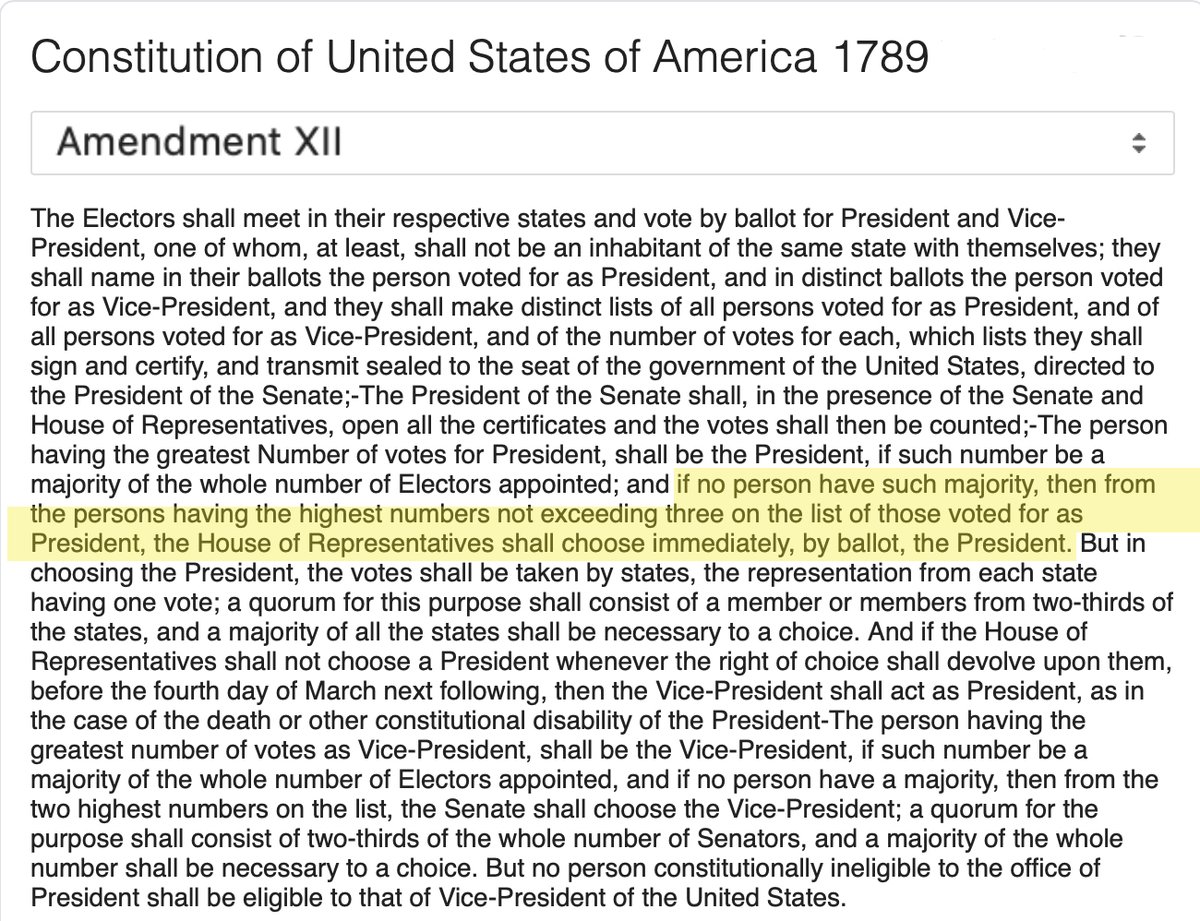(Thread) The Future of the GOP: Part IV
Part I begins here: https://twitter.com/Teri_Kanefield/status/1302665636246515712
I">https://twitter.com/Teri_Kane... left off showing how working to end voter suppression in California shrank the California Republicans down to about 30% of the electorate.
Part I begins here: https://twitter.com/Teri_Kanefield/status/1302665636246515712
I">https://twitter.com/Teri_Kane... left off showing how working to end voter suppression in California shrank the California Republicans down to about 30% of the electorate.
1/ The states most likely to follow CA’s lead share CA’s demographics. Looking at you, Texas.
CA’s white population is about 37%. In Texas, the white population is about 42%.
Aside: Turn Texas blue with its 38 electoral votes and you end the GOP’s electoral college advantage.
CA’s white population is about 37%. In Texas, the white population is about 42%.
Aside: Turn Texas blue with its 38 electoral votes and you end the GOP’s electoral college advantage.
2/ States with a large number of non-whites are in the South and Southwest.
Red states in the South are really voter suppression states https://abs.twimg.com/emoji/v2/... draggable="false" alt="⤵️" title="Nach rechts zeigender Pfeil mit Krümmung nach unten" aria-label="Emoji: Nach rechts zeigender Pfeil mit Krümmung nach unten">
https://abs.twimg.com/emoji/v2/... draggable="false" alt="⤵️" title="Nach rechts zeigender Pfeil mit Krümmung nach unten" aria-label="Emoji: Nach rechts zeigender Pfeil mit Krümmung nach unten">
Makes sense, right? Shrink a white nationalist party by working on the voter suppression problem and mobilizing minority communities.
Red states in the South are really voter suppression states
Makes sense, right? Shrink a white nationalist party by working on the voter suppression problem and mobilizing minority communities.
3/ No surprise: This is exactly what @staceyabrams (who knows about losing an election to cheaters) is working on.
https://fairfight.com/about-fair-fight/
It">https://fairfight.com/about-fai... happens like this: As Democrats assume more power, they enact legislation that makes voter suppression harder, creating a cycle.
https://fairfight.com/about-fair-fight/
It">https://fairfight.com/about-fai... happens like this: As Democrats assume more power, they enact legislation that makes voter suppression harder, creating a cycle.
4/ Enacting voter protection legislation enables non-white supremacists to be elected, thereby dooming white minority rule, and shrinking the GOP.
It& #39;s simple math. (From the Levitsky lecture linked to earlier)
Texas and GA are on the brink.
It& #39;s simple math. (From the Levitsky lecture linked to earlier)
Texas and GA are on the brink.
5/ If we reduce voter suppression, we should see a shift in the map: the South and West (formerly strongholds of hierarchy and white male dominance) will become Democratic.
The South and West would then join the northeast corridor to create a formidable Democratic block.
The South and West would then join the northeast corridor to create a formidable Democratic block.
6/ Sounds great, right?
Well, there are a few obstacles.
Problem #1: The white nationalists will not willingly give up their power.
California can still produce a Devin Nunes. They won& #39;t go away and they remain dangerous.
Well, there are a few obstacles.
Problem #1: The white nationalists will not willingly give up their power.
California can still produce a Devin Nunes. They won& #39;t go away and they remain dangerous.
7/ Problem #2: What happens to the traditional conservatives? Right now they have no party.
Do they get their own party?
First, some definitions. The Fox-Trump-GOP is not a ‘conservative’ party.
It is a reactionary (or regressive) party.
Do they get their own party?
First, some definitions. The Fox-Trump-GOP is not a ‘conservative’ party.
It is a reactionary (or regressive) party.
8/ Political psychologists Capelos and Katsanidou define reactionism as “a forceful desire to return to the past.”
https://onlinelibrary.wiley.com/doi/full/10.1111/pops.12540
They& #39;re">https://onlinelibrary.wiley.com/doi/full/... willing to destroy to get there.
So what is conservatism?
That is the question. @stuartpstevens pointed out that nobody knows https://abs.twimg.com/emoji/v2/... draggable="false" alt="⤵️" title="Nach rechts zeigender Pfeil mit Krümmung nach unten" aria-label="Emoji: Nach rechts zeigender Pfeil mit Krümmung nach unten">
https://abs.twimg.com/emoji/v2/... draggable="false" alt="⤵️" title="Nach rechts zeigender Pfeil mit Krümmung nach unten" aria-label="Emoji: Nach rechts zeigender Pfeil mit Krümmung nach unten">
https://onlinelibrary.wiley.com/doi/full/10.1111/pops.12540
They& #39;re">https://onlinelibrary.wiley.com/doi/full/... willing to destroy to get there.
So what is conservatism?
That is the question. @stuartpstevens pointed out that nobody knows
9/ If the conservatives want their own party, they have to recreate American conservatism from the ground up, and attract a majority of voters.
This takes time.
This takes time.
10/ The only time we had what might be called a traditionally conservative party, from the 1920s until the 1950s, conservatives were ‘pro business.’
This meant no regulation.
The business centers of the US are in New York and California, and these are democratic strongholds.
This meant no regulation.
The business centers of the US are in New York and California, and these are democratic strongholds.
11/ I suspect this is because FDR had it right. Business needs to be regulated to save itself from its own worst impulses.
Without regulation, industry destroys. Examples: The environment. The subprime mortgage debacle. When Andrew Jackson destroyed the central bank.
Without regulation, industry destroys. Examples: The environment. The subprime mortgage debacle. When Andrew Jackson destroyed the central bank.
12/ If conservatives wrest control of the GOP from the white nationalists (or form their own party), they’ll have to figure out how to win elections without these guys  https://abs.twimg.com/emoji/v2/... draggable="false" alt="⤵️" title="Nach rechts zeigender Pfeil mit Krümmung nach unten" aria-label="Emoji: Nach rechts zeigender Pfeil mit Krümmung nach unten">and without outsourcing voter mobilization to Fox News or the NRA.
https://abs.twimg.com/emoji/v2/... draggable="false" alt="⤵️" title="Nach rechts zeigender Pfeil mit Krümmung nach unten" aria-label="Emoji: Nach rechts zeigender Pfeil mit Krümmung nach unten">and without outsourcing voter mobilization to Fox News or the NRA.
Otherwise, they& #39;ll produce another Trump.
Otherwise, they& #39;ll produce another Trump.
13/ Both options open to conservatives who want their own party (retake control of the GOP or form their own) present the same question:
Where do guys like these go? https://abs.twimg.com/emoji/v2/... draggable="false" alt="⤵️" title="Nach rechts zeigender Pfeil mit Krümmung nach unten" aria-label="Emoji: Nach rechts zeigender Pfeil mit Krümmung nach unten">
https://abs.twimg.com/emoji/v2/... draggable="false" alt="⤵️" title="Nach rechts zeigender Pfeil mit Krümmung nach unten" aria-label="Emoji: Nach rechts zeigender Pfeil mit Krümmung nach unten">
There has always been a party that welcomed them.
Where do guys like these go?
There has always been a party that welcomed them.
14/ Trump showed us how many of them there are.
Which party do they join?
OK, time to talk about the 2-party system.
No, https://abs.twimg.com/emoji/v2/... draggable="false" alt="⤵️" title="Nach rechts zeigender Pfeil mit Krümmung nach unten" aria-label="Emoji: Nach rechts zeigender Pfeil mit Krümmung nach unten"> and George Washington warned against them, but they& #39;re now deeply entrenched. https://twitter.com/freeintheforest/status/1302839843467259904">https://twitter.com/freeinthe...
https://abs.twimg.com/emoji/v2/... draggable="false" alt="⤵️" title="Nach rechts zeigender Pfeil mit Krümmung nach unten" aria-label="Emoji: Nach rechts zeigender Pfeil mit Krümmung nach unten"> and George Washington warned against them, but they& #39;re now deeply entrenched. https://twitter.com/freeintheforest/status/1302839843467259904">https://twitter.com/freeinthe...
Which party do they join?
OK, time to talk about the 2-party system.
No,
15/ The framers of the Constitution imagined no parties, but the constitution they designed doesn’t work well with more than two.
That’s because the framers avoided a parliamentary system.
A presidential system with multiple parties creates problems.
That’s because the framers avoided a parliamentary system.
A presidential system with multiple parties creates problems.
16/ If the people directly elect a strong chief executive and the vote is split, say, 4 ways, you run the risk of a person becoming president with under 30% of the vote.
This guy could easily win https://abs.twimg.com/emoji/v2/... draggable="false" alt="⤵️" title="Nach rechts zeigender Pfeil mit Krümmung nach unten" aria-label="Emoji: Nach rechts zeigender Pfeil mit Krümmung nach unten"> See the problem?
https://abs.twimg.com/emoji/v2/... draggable="false" alt="⤵️" title="Nach rechts zeigender Pfeil mit Krümmung nach unten" aria-label="Emoji: Nach rechts zeigender Pfeil mit Krümmung nach unten"> See the problem?
They could also more easily get elected to Congress.
This guy could easily win
They could also more easily get elected to Congress.
17/ To make it harder for a fringe extremist to become president, we have the Twelfth Amendment.
If no presidential candidate achieves a majority, the House selects the president from the top three candidates. (I don& #39;t actually see that working well either).
If no presidential candidate achieves a majority, the House selects the president from the top three candidates. (I don& #39;t actually see that working well either).
18/ For these reasons, and others prof. Mainwaring argues that a multiparty presidential democracy are difficult to sustain. https://pdfs.semanticscholar.org/57a9/6f330f7ea2fc73ea1ab83b8c07d760a8b099.pdf
(Note">https://pdfs.semanticscholar.org/57a9/6f33... that states are basically presidential systems with Constitutions modeled on the US Constitution.)
(Note">https://pdfs.semanticscholar.org/57a9/6f33... that states are basically presidential systems with Constitutions modeled on the US Constitution.)
19/ So unless we entirely change our form of government or risk minority rule, we’re better off with 2 parties.
This brings us to another obstacle: Winning a majority in a two-party system means being in a big tent.
A big tent sounds good, but lots of people will hate it.
This brings us to another obstacle: Winning a majority in a two-party system means being in a big tent.
A big tent sounds good, but lots of people will hate it.
20/ I guarantee that if you’re under a tent with more than half the voters, you will not agree on all issues.
Big tents require compromise. It means getting along with people who hold views you hate and did things you despise.
Lots of parties means little tents.
Big tents require compromise. It means getting along with people who hold views you hate and did things you despise.
Lots of parties means little tents.
21/ Little tents means being with only friends.
If conservatives split from liberals and (wisely) refuse to join with the reactionaries, we have (at least) 3 parties, which means someone with 33% of the vote can become president, which increases the chances of another Trump.
If conservatives split from liberals and (wisely) refuse to join with the reactionaries, we have (at least) 3 parties, which means someone with 33% of the vote can become president, which increases the chances of another Trump.
22/ So it’s possible that, for the foreseeable future, the white nationalists need their own party and the rest of us will have to learn to get along under a big tent to avoid leaders coming to power with 30% of the vote.
Are we up to it?
Are we up to it?
People are asking about ranked voting. I haven& #39;t thought enough about the implications for parties and how it would be implemented. Me before I can answer: https://abs.twimg.com/emoji/v2/... draggable="false" alt="🤔" title="Denkendes Gesicht" aria-label="Emoji: Denkendes Gesicht">
https://abs.twimg.com/emoji/v2/... draggable="false" alt="🤔" title="Denkendes Gesicht" aria-label="Emoji: Denkendes Gesicht">
It seems better for primaries, because parties can easily change the rules. Changing voting everywhere is a bit harder.
It seems better for primaries, because parties can easily change the rules. Changing voting everywhere is a bit harder.
Also I overly simplified the GOP between 1920 and 1955 when I said “no regulations.”
During those decades, there was a large moderate / conservative wing of the party.
The GOP in that era also produced Sen. McCarthy--but many were moderate.
During those decades, there was a large moderate / conservative wing of the party.
The GOP in that era also produced Sen. McCarthy--but many were moderate.
I was very cryptic with that. https://twitter.com/davidwstew/status/1303411608069246976
Our">https://twitter.com/davidwste... first economic depression happened after Jackson dismantled the central bank, which essentially deregulated the financial and banking industries.
It was the deregulation that sent the economy into a spin. . .
Our">https://twitter.com/davidwste... first economic depression happened after Jackson dismantled the central bank, which essentially deregulated the financial and banking industries.
It was the deregulation that sent the economy into a spin. . .
So the first depression was caused by degregulating the banks. The Great Depression happened after the 1920s when industries were completely deregulated. The subprime mortgage debacle happened when regulations were removed.
 https://abs.twimg.com/emoji/v2/... draggable="false" alt="🎶" title="Mehrere Musiknoten" aria-label="Emoji: Mehrere Musiknoten">when will they ever learn?
https://abs.twimg.com/emoji/v2/... draggable="false" alt="🎶" title="Mehrere Musiknoten" aria-label="Emoji: Mehrere Musiknoten">when will they ever learn? https://abs.twimg.com/emoji/v2/... draggable="false" alt="🎶" title="Mehrere Musiknoten" aria-label="Emoji: Mehrere Musiknoten">
https://abs.twimg.com/emoji/v2/... draggable="false" alt="🎶" title="Mehrere Musiknoten" aria-label="Emoji: Mehrere Musiknoten">
Actually. . .
Actually. . .
. . . the people who want to cheat and grab benefit from deregulation.
They tend to land on their feet when the economy tanks.
Honest business people do not benefit from deregulation.
So "deregulation is pro-business" is not accurate.
In fact, deregulation is pro-cheater.
They tend to land on their feet when the economy tanks.
Honest business people do not benefit from deregulation.
So "deregulation is pro-business" is not accurate.
In fact, deregulation is pro-cheater.

 Read on Twitter
Read on Twitter
 Makes sense, right? Shrink a white nationalist party by working on the voter suppression problem and mobilizing minority communities." title="2/ States with a large number of non-whites are in the South and Southwest. Red states in the South are really voter suppression stateshttps://abs.twimg.com/emoji/v2/... draggable="false" alt="⤵️" title="Nach rechts zeigender Pfeil mit Krümmung nach unten" aria-label="Emoji: Nach rechts zeigender Pfeil mit Krümmung nach unten">Makes sense, right? Shrink a white nationalist party by working on the voter suppression problem and mobilizing minority communities." class="img-responsive" style="max-width:100%;"/>
Makes sense, right? Shrink a white nationalist party by working on the voter suppression problem and mobilizing minority communities." title="2/ States with a large number of non-whites are in the South and Southwest. Red states in the South are really voter suppression stateshttps://abs.twimg.com/emoji/v2/... draggable="false" alt="⤵️" title="Nach rechts zeigender Pfeil mit Krümmung nach unten" aria-label="Emoji: Nach rechts zeigender Pfeil mit Krümmung nach unten">Makes sense, right? Shrink a white nationalist party by working on the voter suppression problem and mobilizing minority communities." class="img-responsive" style="max-width:100%;"/>

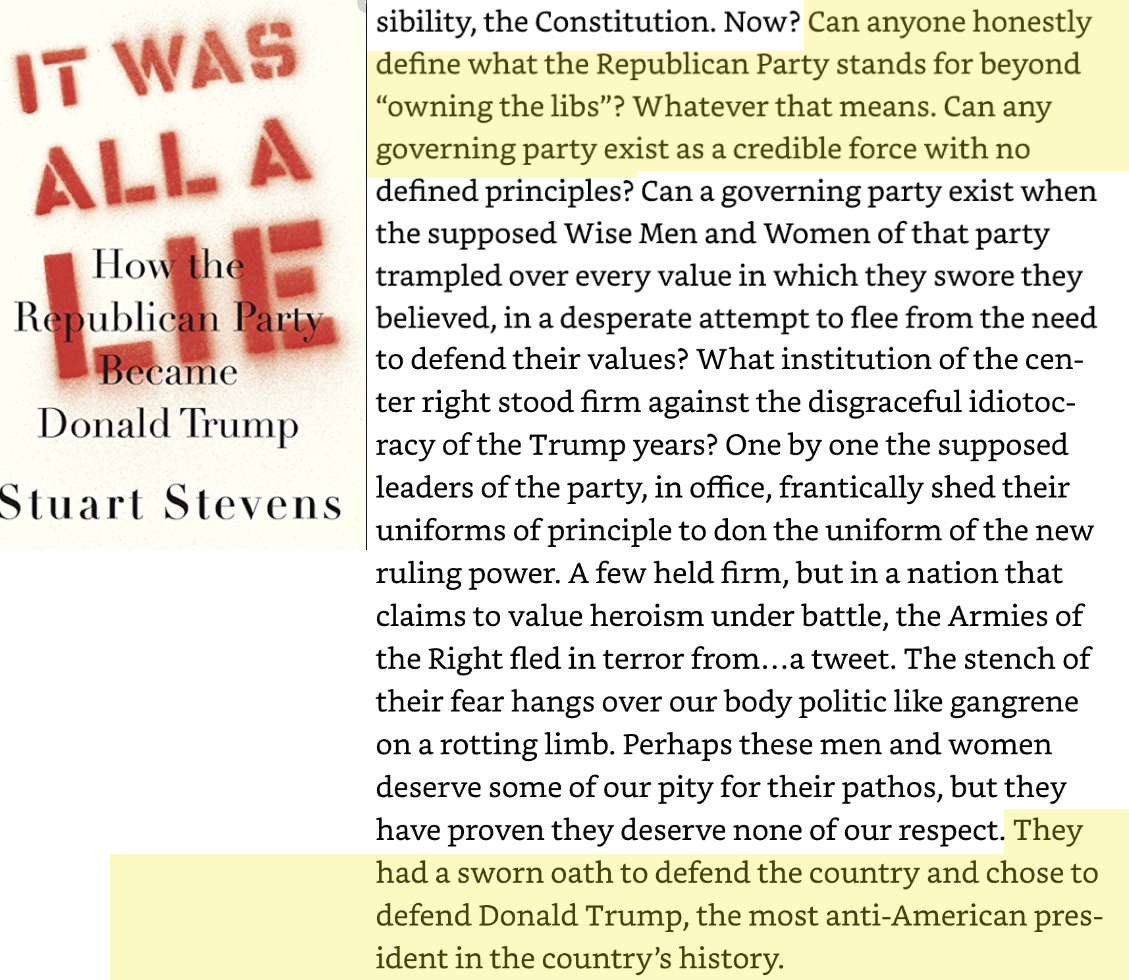 " title="8/ Political psychologists Capelos and Katsanidou define reactionism as “a forceful desire to return to the past.” https://onlinelibrary.wiley.com/doi/full/... willing to destroy to get there.So what is conservatism? That is the question. @stuartpstevens pointed out that nobody knows https://abs.twimg.com/emoji/v2/... draggable="false" alt="⤵️" title="Nach rechts zeigender Pfeil mit Krümmung nach unten" aria-label="Emoji: Nach rechts zeigender Pfeil mit Krümmung nach unten">" class="img-responsive" style="max-width:100%;"/>
" title="8/ Political psychologists Capelos and Katsanidou define reactionism as “a forceful desire to return to the past.” https://onlinelibrary.wiley.com/doi/full/... willing to destroy to get there.So what is conservatism? That is the question. @stuartpstevens pointed out that nobody knows https://abs.twimg.com/emoji/v2/... draggable="false" alt="⤵️" title="Nach rechts zeigender Pfeil mit Krümmung nach unten" aria-label="Emoji: Nach rechts zeigender Pfeil mit Krümmung nach unten">" class="img-responsive" style="max-width:100%;"/>
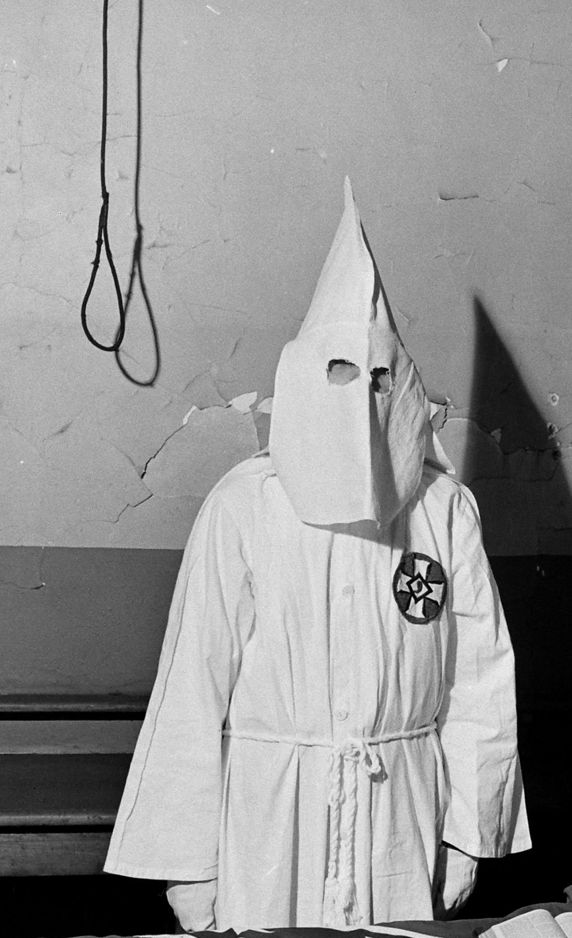 and without outsourcing voter mobilization to Fox News or the NRA.Otherwise, they& #39;ll produce another Trump." title="12/ If conservatives wrest control of the GOP from the white nationalists (or form their own party), they’ll have to figure out how to win elections without these guys https://abs.twimg.com/emoji/v2/... draggable="false" alt="⤵️" title="Nach rechts zeigender Pfeil mit Krümmung nach unten" aria-label="Emoji: Nach rechts zeigender Pfeil mit Krümmung nach unten">and without outsourcing voter mobilization to Fox News or the NRA.Otherwise, they& #39;ll produce another Trump.">
and without outsourcing voter mobilization to Fox News or the NRA.Otherwise, they& #39;ll produce another Trump." title="12/ If conservatives wrest control of the GOP from the white nationalists (or form their own party), they’ll have to figure out how to win elections without these guys https://abs.twimg.com/emoji/v2/... draggable="false" alt="⤵️" title="Nach rechts zeigender Pfeil mit Krümmung nach unten" aria-label="Emoji: Nach rechts zeigender Pfeil mit Krümmung nach unten">and without outsourcing voter mobilization to Fox News or the NRA.Otherwise, they& #39;ll produce another Trump.">
 and without outsourcing voter mobilization to Fox News or the NRA.Otherwise, they& #39;ll produce another Trump." title="12/ If conservatives wrest control of the GOP from the white nationalists (or form their own party), they’ll have to figure out how to win elections without these guys https://abs.twimg.com/emoji/v2/... draggable="false" alt="⤵️" title="Nach rechts zeigender Pfeil mit Krümmung nach unten" aria-label="Emoji: Nach rechts zeigender Pfeil mit Krümmung nach unten">and without outsourcing voter mobilization to Fox News or the NRA.Otherwise, they& #39;ll produce another Trump.">
and without outsourcing voter mobilization to Fox News or the NRA.Otherwise, they& #39;ll produce another Trump." title="12/ If conservatives wrest control of the GOP from the white nationalists (or form their own party), they’ll have to figure out how to win elections without these guys https://abs.twimg.com/emoji/v2/... draggable="false" alt="⤵️" title="Nach rechts zeigender Pfeil mit Krümmung nach unten" aria-label="Emoji: Nach rechts zeigender Pfeil mit Krümmung nach unten">and without outsourcing voter mobilization to Fox News or the NRA.Otherwise, they& #39;ll produce another Trump.">
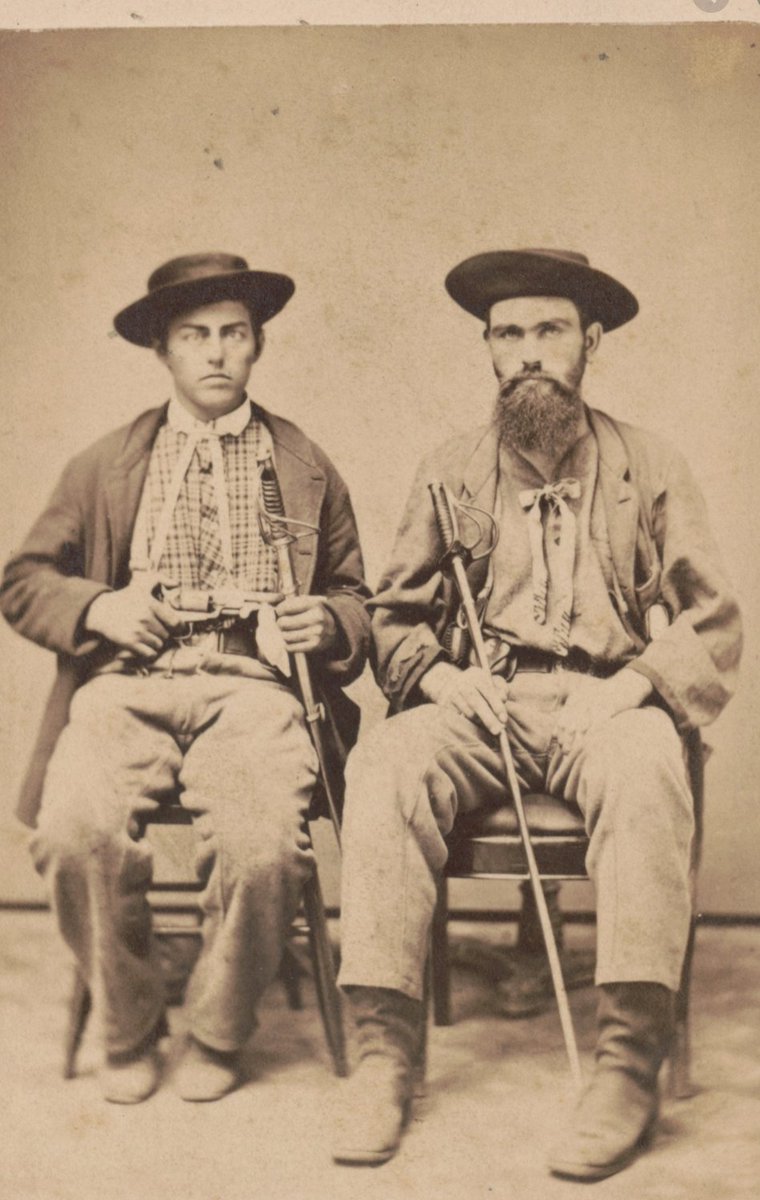 There has always been a party that welcomed them." title="13/ Both options open to conservatives who want their own party (retake control of the GOP or form their own) present the same question: Where do guys like these go? https://abs.twimg.com/emoji/v2/... draggable="false" alt="⤵️" title="Nach rechts zeigender Pfeil mit Krümmung nach unten" aria-label="Emoji: Nach rechts zeigender Pfeil mit Krümmung nach unten">There has always been a party that welcomed them." class="img-responsive" style="max-width:100%;"/>
There has always been a party that welcomed them." title="13/ Both options open to conservatives who want their own party (retake control of the GOP or form their own) present the same question: Where do guys like these go? https://abs.twimg.com/emoji/v2/... draggable="false" alt="⤵️" title="Nach rechts zeigender Pfeil mit Krümmung nach unten" aria-label="Emoji: Nach rechts zeigender Pfeil mit Krümmung nach unten">There has always been a party that welcomed them." class="img-responsive" style="max-width:100%;"/>
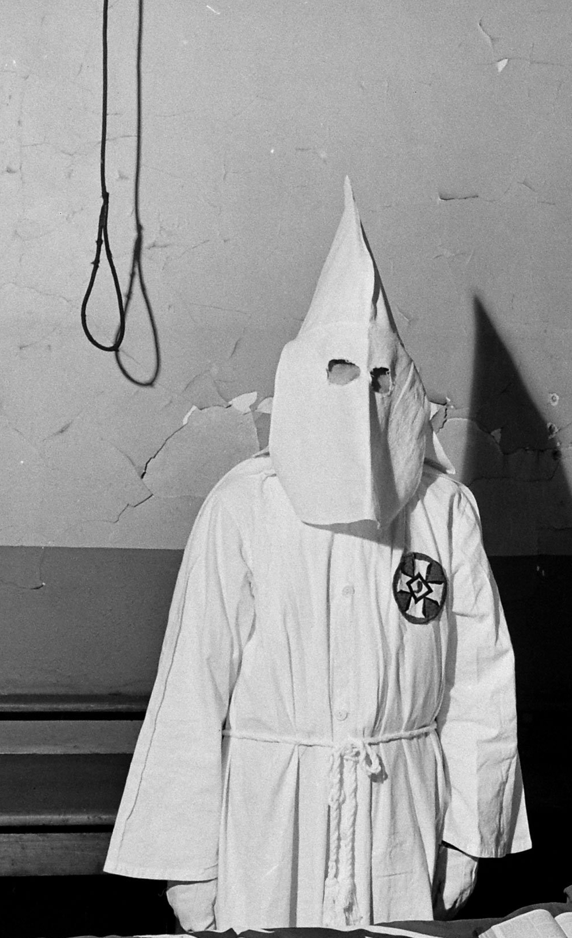 See the problem?They could also more easily get elected to Congress." title="16/ If the people directly elect a strong chief executive and the vote is split, say, 4 ways, you run the risk of a person becoming president with under 30% of the vote.This guy could easily winhttps://abs.twimg.com/emoji/v2/... draggable="false" alt="⤵️" title="Nach rechts zeigender Pfeil mit Krümmung nach unten" aria-label="Emoji: Nach rechts zeigender Pfeil mit Krümmung nach unten"> See the problem?They could also more easily get elected to Congress." class="img-responsive" style="max-width:100%;"/>
See the problem?They could also more easily get elected to Congress." title="16/ If the people directly elect a strong chief executive and the vote is split, say, 4 ways, you run the risk of a person becoming president with under 30% of the vote.This guy could easily winhttps://abs.twimg.com/emoji/v2/... draggable="false" alt="⤵️" title="Nach rechts zeigender Pfeil mit Krümmung nach unten" aria-label="Emoji: Nach rechts zeigender Pfeil mit Krümmung nach unten"> See the problem?They could also more easily get elected to Congress." class="img-responsive" style="max-width:100%;"/>
